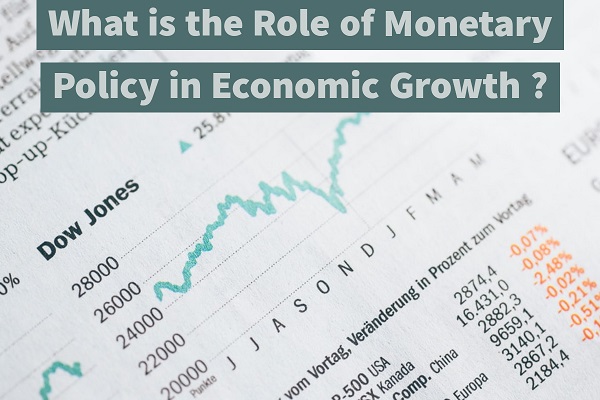What is the Role of Monetary Policy in Economic Growth ?
Economic growth means expansion in productive capacity or capital stock which in turn increases real national output or income of the people of the country.
There are few steps to accelerate the economic growth of a country. They are –
(a) Increase in the aggregate rate of saving in the economy.
(b) Mobilisation of savings (making savings available for investment and production)
(c) Increase in the rate of investment
(d) Allocation of investment funds for productive purposes and priority sectors of the economy.
Proper monetary policy can help in achieving a desired rate of economy growth.
1. Monetary Policy and Savings –
Several monetary measures can be adopted to increase the rate of saving. Mainly a high interest rate policy can promote savings. But this is based on an assumption that savings were positively elastic (sensitive) to the interest rate.
In our point of view, a developing country should adopt a reasonable positive real interest rate policy to provide incentives for more savings. With increased savings there will be more available funds for investment, which will accelerate economic growth of the country.
If monetary policy in developing country is to promote economic growth it must aim at increasing the rate of saving. And to increase the rate of saving, real rate of interest should be positive and preferably should not be allowed to fall below 5% per annum, if it is to provide reasonable rate of return on savings. Therefore, with the rise in inflation nominal rate of interest should also be raised to keep incentives for saving intact.
Real Rate of Interest = Nominal Rate of Interest – Rate of Inflation
Monetary policy can also play a strategic role in raising national savings by promoting the expansion of the banking facilities and other financial institutions in the developing countries, mainly in their rural areas.
Mobilisation of savings is also as much important as increasing savings, without proper mobilisation of savings there not be enough investment to accelerate the economic growth.
If banks wants to mobilise adequate amount of savings in the form of bank deposits, interest rates on bank deposits must remain positive in real terms (means, the rate of interest must be maintained at a higher level than the rate of inflation). If by excessive rise in prices, real rate of interest becomes negative, people will be discouraged to save.
2. Monetary Policy and Investment –
Cost of Credit –
Availability of Credit –
Monetary Policy and Private Investment –
Monetary Policy and Public Investment –
3. Allocation of Investment Funds –
